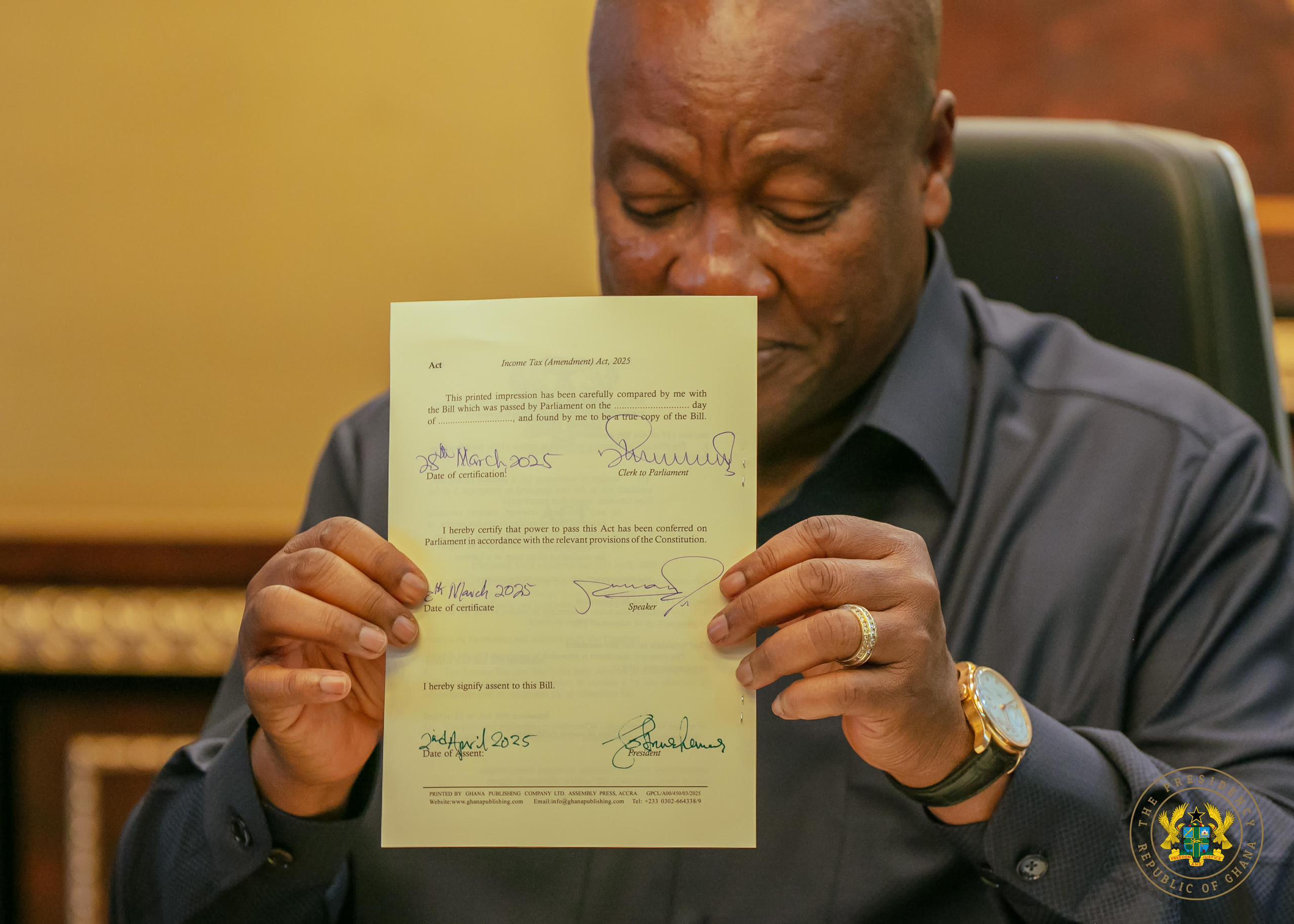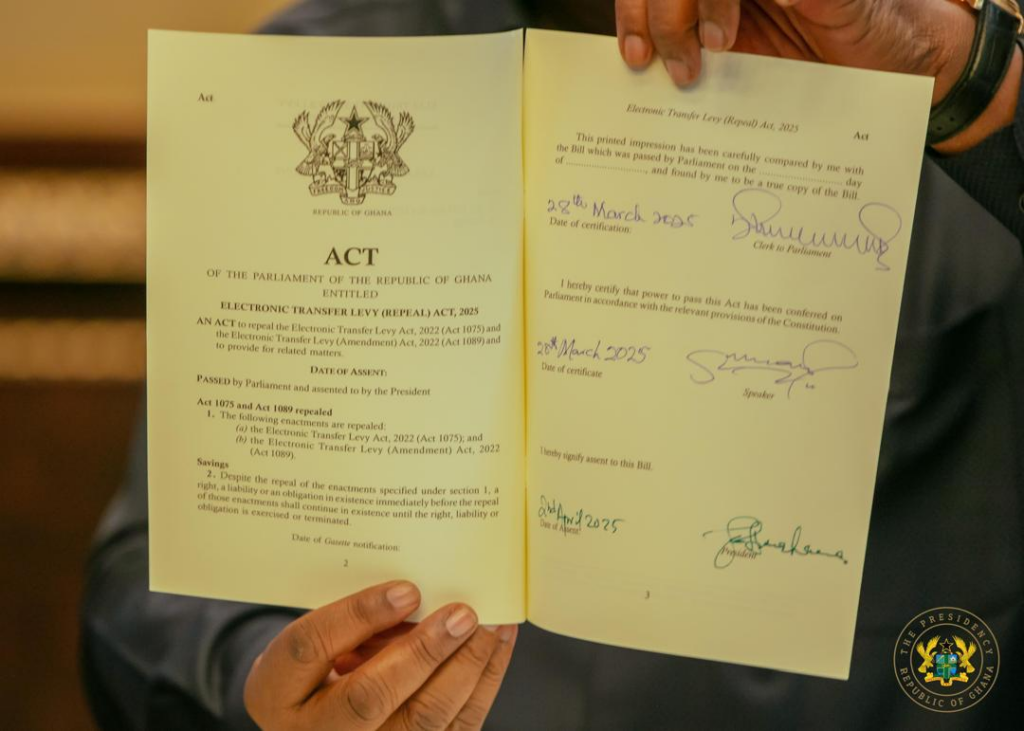President John Mahama of Ghana has recently taken significant steps to fulfill key campaign promises by signing amended bills into law that abolish several controversial taxes, including the Betting Tax, the E-Levy Tax, and the Emissions Tax. This decision marks a pivotal moment in his administration’s approach to economic policy and public sentiment.

1. Abolition of the Betting Tax: The repeal of the Betting Tax has been met with widespread approval among stakeholders in the gaming industry. This tax was criticized for being a barrier to growth and investment in a sector that contributes significantly to the economy. By abolishing this tax, Mahama aims to foster a more favorable business environment, encourage responsible gaming practices, and increase the sector’s contributions to job creation and revenue.

2. E-Levy Tax Repeal: The E-Levy Tax, introduced to tax electronic transactions, faced significant backlash from the public and various civil society groups. Critics argued that it placed an unfair burden on ordinary citizens and stifled digital innovation. By signing the bill to repeal this tax, Mahama responds to the concerns of the electorate, signaling his commitment to promoting financial inclusion and enhancing the digital economy without imposing additional financial burdens on citizens.
3. Emissions Tax Abolishment: The removal of the Emissions Tax reflects a shift towards more balanced environmental policies. While aimed at curbing pollution and encouraging sustainable practices, the tax was seen by many businesses as an extra financial strain. The former president’s decision to abolish it suggests a recognition of the need for a more collaborative approach to environmental issues, one that supports economic growth while still addressing climate challenges.

4. Political Impact: This approach seeks to rebuild trust and demonstrate responsiveness to the needs and concerns of the populace.
5. Economic Implications: The abolition of these taxes is expected to have various economic implications. By reducing the tax burden on citizens and businesses, Mahama hopes to stimulate economic activity, encourage spending, and attract investment. This could lead to job creation and overall economic growth in the country.
President John Mahama’s signing of the bills to abolish the Betting Tax, E-Levy Tax, and Emissions Tax underscores his commitment to delivering on campaign promises and responding to public sentiment. These changes are anticipated to foster a more conducive economic environment, support businesses, and enhance the quality of life for Ghanaians as he navigates the complex landscape of governance and electoral politics.

#Economic Revolution #Diplomacy #Ghana #Tax Abolishment #Concern for the Citizens #Economic Development #Democracy #Africa #The Citizen
Pubkiaher: The Scribe




